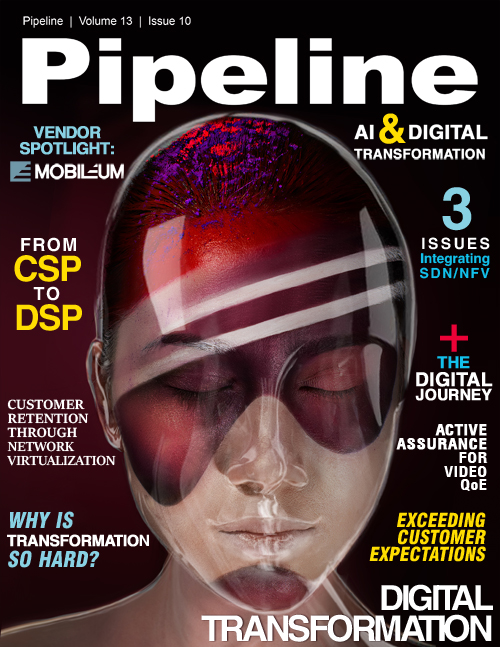AI is Crucial for Digital Transformation
Seamless customer experience and contextualized interactions
I wrote about this last month, but I am happy to say it again: Lots of CSPs are missing the boat when it comes to seamless customer experience. Big time.
But the good news is that AI is getting pretty good at interacting with customers. Chatbots like My Starbucks Barista and KLM Airline’s Facebook Messenger chatbot are meeting and exceeding customer expectations with easy, personalized, and lightning fast interactions.
And this is the wave of the future. Gartner predicts that by 2020, autonomous software agents (with no outside human control) will participate in 5 percent of all economic transactions.
Fortunately for CSPs, there are vendors out there putting together digital assistants specifically tailored to telecom. For example, CrowdCare announced just a few weeks ago that it has partnered with IBM Watson to make their Wysdom self-care solution more intuitive.
Watson also underpins Amdocs’ recently announced aia, which the company describes as a “self-driving telco.” The aia platform uses data in real-time to make predictions, automate decisions, manage conversations with customers dynamically.
And the potential for AI assistance isn’t limited to the customer side. Just a few months back, for instance, Nokia announced the launch of MIKA (multi-purpose intuitive knowledge assistant), which is built on the company’s AVA cognitive services platform and is designed to help engineers gain access to knowledge quickly and efficiently.
"Finding the right information is a daily challenge for telco engineers tasked with boosting network quality,” said Igor Leprince, head of Global Services at Nokia, in a statement. “MIKA taps into the power of the Nokia AVA platform to provide quick and accurate answers, avoiding time wasted on fruitless searches.” Nokia estimates that MIKA can “give back” more than an hour of productive time to highly-trained engineers.
This is all crucial when attempting to move at the speed of customer expectation.
Cyber security and resilience
How many security breaches come down to human error? A door left open or an errant line of code. Suspicious activity missed or ignored. It happens. And it happens more when you’ve got the vast and varied digital landscape to cover.
AI can help close that gap. Just a few months ago, Rahul Sasi and his team at CloudSek used a human-bot hacking hybrid to discover several massive flaws in LinkedIn, which would have allowed access to private contact information, enabled hackers to delete connection requests and more.
The security potential of AI has caused an inevitable backlash from those who point out that AI alone cannot be trusted to root out security flaws. But as Sasi and team’s model suggests, intelligent machines working in concert with trained professionals are capable of tremendous feats.
Big Data
That same edge that AI brings to cyber-security—the ability to identify and track anomalies that a human might miss—is valuable for every aspect of data analysis that a CSP might encounter. Ovum calls machine learning the biggest disruptor in Big Data trends over the coming year. IBM is obviously heavily involved, as are Amazon, Microsoft, Google, HPE, Oracle, SAP, Informatica, and many others.
The Future
Gartner predicts that, by next year, 45 percent of the fastest-growing companies will have fewer employees than instances of smart machines. It also predicts that by next year, 3 million workers, worldwide, will be supervised by a “robo-boss.”
Heck, I’m even a little nervous about my own future job security, based on the prediction that 20 percent of business content will be authored by machines next year.
But machines can’t do it all, and they need help. By 2018, 6 billion connected things will be requesting support. Who’ll be there to fulfill that request? Will machines be helping machines? Or will a human hand be necessary?
It’s a complex landscape, but that’s nothing new. A smart approach to AI could be the path to an efficient and profitable future for CSPs.


















